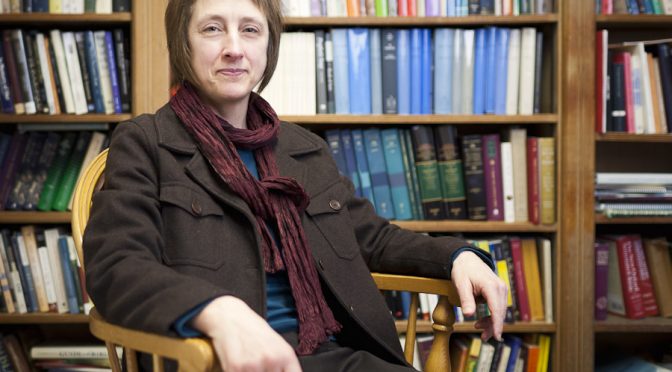You are warmly invited to attend a workshop with Prof. Judith H. Newman on “Scribal Bodies as Liturgical Bodies: The Formation of Scriptures in Early Judaism”, to be held Friday, 14 October from 9:30-11:30 in Porthania Building lecture room P724 (7th floor of Yliopistonkatu 3). The workshop is open to all scholars and students interested in Second Temple Judaism and transmission of literary traditions.
Judith H. Newman is Associate P rofessor of Old Testament/Hebrew Bible at Emmanuel College and holds a joint appointment with the Department for the Study of Religion in the area of early Judaism and a cross-appointment to the Department of Near and Middle Eastern Civilizations at the University of Toronto. She is also a faculty member of the Centre for Jewish Studies.
rofessor of Old Testament/Hebrew Bible at Emmanuel College and holds a joint appointment with the Department for the Study of Religion in the area of early Judaism and a cross-appointment to the Department of Near and Middle Eastern Civilizations at the University of Toronto. She is also a faculty member of the Centre for Jewish Studies.
Prof. Newman specializes in the Hebrew Bible as well as Jewish literature of the Second Temple period. Her current research interests are in the ritual performance of texts particularly as this intersects with the formation of communities in early Judaism and Christianity. She is also interested in the development of scripture, early biblical interpretation, as well as method in the study of the Bible and early Judaism and Christianity. Emerging projects include work on literature of the Hasmonean period, particularly the book of Judith; and a study of time, temporality, and liturgy.


